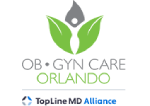High-risk pregnancies can pose unique challenges to expectant mothers, requiring specialized care and attention. Understanding the causes, prevention strategies, and management of such pregnancies is crucial for ensuring a healthy outcome for both mother and baby. In this comprehensive guide, we will delve into the expertise provided by OB/GYN specialists, shedding light on the vital role of prenatal care in addressing issues like gestational diabetes, preeclampsia, and preterm labor. By highlighting the importance of specialized tests, monitoring, and proactive preparation, women can embark on a journey toward a healthy delivery with confidence.
Importance of Prenatal Care: An Overview

Causes and Prevention Strategies for High-risk Pregnancies
High-risk pregnancies often arise from a complex blend of factors. These can include maternal age, pre-existing health conditions like high blood pressure or diabetes, lifestyle choices, and pregnancy complications such as preeclampsia. Understanding these risks is the first step in prevention. To mitigate these factors, expectant mothers should seek early and regular prenatal care. This care includes comprehensive screenings and health assessments designed to identify risks early on. Lifestyle modifications such as a nutritious diet, appropriate exercise, and avoiding harmful substances are also key preventative strategies. Additionally, managing pre-existing conditions with the guidance of healthcare professionals is critical. By exploring the causes and prevention strategies for high-risk pregnancies, we can increase the likelihood of a healthy mother and baby.
Prenatal Care: OB/GYN Expert Advice
OB/GYN specialists are key partners in managing high-risk pregnancies. Their expert advice is grounded in the latest research and best practices in maternal-fetal medicine. They recommend that prenatal care should start as soon as pregnancy is confirmed. This allows for timely health interventions and the development of a personalized care plan. Regular check-ups enable OB/GYNs to monitor the mother’s health, assess fetal development, and modify care as required. They also guide expectant mothers on proper nutrition, exercise, and stress management to support a healthy pregnancy. Women with high-risk factors need to maintain open communication with their OB/GYN and report any concerns immediately. Through expert advice from OB/GYN specialists, women can navigate their pregnancies with the right support and knowledge.
Critical Role of Specialized Tests and Monitoring
Specialized tests and monitoring are indispensable in prenatal care, especially for high-risk pregnancies. These tests go beyond routine check-ups, offering deeper insights into the health and development of the fetus, as well as the well-being of the mother. Ultrasounds, for example, can detect anatomical abnormalities, while blood tests can reveal genetic conditions. In cases where gestational diabetes or preeclampsia are concerns, additional monitoring, like glucose screening and blood pressure checks, is vital. Non-stress tests or biophysical profiles may be employed to assess the baby’s heart rate and movements. These specialized tests allow healthcare providers to detect potential issues early, increasing the chances of successful management or intervention. Regular, specialized monitoring enables expectant mothers and healthcare professionals to make informed decisions, ensuring the highest standard of care for both mother and baby.
Managing High-Risk Pregnancies
Unraveling the Mystery of Gestational Diabetes
Gestational diabetes is a condition that can develop during pregnancy, characterized by high blood sugar levels that were normal before pregnancy. It poses risks to both mother and baby, making its management a key focus in high-risk pregnancies. Early screening, typically around the 24th to 28th week of pregnancy, is crucial for detection. If diagnosed, blood sugar levels must be carefully monitored and managed through diet, exercise, and sometimes medication.
OB/GYNs and endocrinologists work together to provide a comprehensive care plan, which may include self-monitoring of blood glucose and insulin therapy if necessary. Education plays a pivotal role, as understanding the condition empowers women to take charge of their health and make informed decisions. Through careful monitoring and management, most women with gestational diabetes can deliver healthy babies and see their blood glucose levels return to normal postpartum.
Preeclampsia: An Obstetric Challenge
Preeclampsia is a serious condition characterized by high blood pressure and signs of damage to other organ systems, most often the liver and kidneys, which can occur after the 20th week of pregnancy. This condition can lead to severe complications for both the mother and the unborn child if not managed properly. Early detection through regular prenatal visits is essential for the health and safety of the mother and baby. Treatment may include blood pressure medication and close monitoring, with delivery often being the ultimate solution to prevent life-threatening complications. It’s important for women to be aware of the symptoms, such as severe headaches, vision changes, and upper abdominal pain, and to seek immediate medical attention if these occur. With vigilant prenatal care and effective management strategies, the risks associated with preeclampsia can be significantly reduced.
Understanding Fetal Health and Monitoring
Monitoring fetal health is a cornerstone of managing high-risk pregnancies. It involves a series of non-invasive tests designed to track the baby’s growth and development and detect any potential issues that could affect the pregnancy outcome. Techniques such as ultrasound imaging provide detailed visuals of the fetus, while fetal heart rate monitoring assesses the baby’s well-being. For pregnancies with increased risks, such as those with gestational diabetes or preeclampsia, more frequent and specialized monitoring may be necessary. This can include Doppler flow studies to evaluate blood flow and oxygen delivery to the fetus. Understanding the intricacies of fetal health allows healthcare providers to intervene when necessary, such as recommending early delivery in the case of fetal distress. Through vigilant monitoring, healthcare teams aim to ensure the best possible outcomes for both mother and child.
Preparing for a Healthy Delivery
Maternal Health: Up-close and Personal
As the delivery date approaches, a woman’s health becomes increasingly paramount. Preparing for a healthy delivery involves more than just planning for the big day; it includes a close examination of the mother’s physical and emotional well-being. Healthcare providers encourage mothers to engage in prenatal classes to understand the labor process and pain management options. Nutrition continues to be a focal point, with an emphasis on a balanced diet that supports the final stages of fetal growth and the mother’s energy needs. Stress management techniques are also crucial, as mental health has a direct impact on pregnancy outcomes.
Regular check-ups in the third trimester help monitor the mother’s health, ensuring any signs of complications, such as preterm labor or preeclampsia, are addressed promptly. Personalized care tailored to the mother’s unique needs is essential for a safe and healthy delivery.
Pregnancy Complications: Prevention and Management
Preventing and managing complications is a critical aspect of preparing for a healthy delivery. Women are encouraged to be proactive in recognizing the signs of potential complications, such as preterm labor, gestational diabetes, and preeclampsia. Healthcare providers play a significant role in educating expectant mothers on these signs, which may include sudden swelling, persistent headaches, or changes in vision. A plan for prompt response to such symptoms is established early in the pregnancy, ensuring immediate medical care if needed.
Regular prenatal visits allow for the ongoing assessment of the mother’s and baby’s health and the timely adjustment of care plans. Additionally, women with pre-existing conditions are closely monitored to manage these conditions effectively throughout the pregnancy. With vigilant prevention and management strategies, potential pregnancy complications can be minimized, paving the way for a safer delivery.
The Relevance of Obstetric Care
The role of obstetric care in preparing for a healthy delivery cannot be overstated. It encompasses more than just managing the pregnancy; it includes preparing the mother for the physical and emotional aspects of childbirth. Obstetricians and other healthcare professionals provide support and guidance on everything from creating a birth plan to understanding the stages of labor. They also focus on identifying and preparing for any potential birth-related complications, such as breech positioning or the need for a cesarean section.
Antenatal classes offered by obstetric care providers are invaluable, as they equip expectant parents with knowledge and skills for labor, delivery, and postpartum care. Through personalized obstetric care, women are empowered to make informed decisions, feel confident in their ability to give birth and look forward to welcoming their child with optimism and a sense of readiness.
Prenatal Care Services in Orlando

High-Risk Pregnancy Care: Orlando’s Best
In Orlando, women with high-risk pregnancies have access to some of the best prenatal care services. These specialized programs are designed to cater to the unique needs of each pregnancy, providing comprehensive support and treatment. With a team of experienced OB/GYNs, perinatologists, and maternal-fetal medicine specialists, expectant mothers receive the highest standard of care. They benefit from advanced diagnostic tools and monitoring techniques that help manage any complications effectively. Orlando’s medical teams are adept at creating a nurturing environment that fosters open communication, allowing women to express concerns and receive personalized attention. The dedication to excellence in high-risk pregnancy care in Orlando ensures that mothers-to-be and their babies receive optimal support throughout the pregnancy journey, significantly improving health outcomes.
Fetal Health Monitoring: An Orlando Perspective
Orlando’s approach to fetal health monitoring stands out for its use of state-of-the-art technology and personalized care. Expectant mothers can expect comprehensive monitoring services that include routine ultrasounds, non-stress tests, and biophysical profiles. These services are vital for tracking the growth and well-being of the fetus, especially in high-risk pregnancies.
Healthcare providers in Orlando emphasize the importance of regular appointments to ensure that any changes in the baby’s condition are promptly identified and addressed. The collaborative efforts of obstetricians, sonographers, and specialized nurses ensure that each case is managed with utmost precision and care. Orlando’s commitment to advanced fetal monitoring reflects the community’s dedication to safeguarding the health of both mothers and their unborn children, setting a standard for prenatal care excellence.
Preterm Labor Prevention: Knowledge is Power
In the realm of prenatal care, preventing preterm labor is a top priority, particularly in high-risk pregnancies. Orlando’s prenatal care services focus on empowering women with knowledge and strategies to reduce the risk of early labor. This includes education on recognizing the signs of preterm labor, such as regular contractions or changes in vaginal discharge, and understanding modifiable risk factors like smoking cessation and managing stress. Healthcare providers in Orlando also emphasize the importance of prenatal visits, as they allow for the tracking of cervical changes and other early indicators of preterm labor.
When risks are identified, interventions such as progesterone treatments or cervical cerclage may be utilized. Proactive measures and informed decision-making are key components of Orlando’s approach to preterm labor prevention, ensuring women have access to the resources and support they need for a full-term pregnancy.
The High-Risk OB/GYN in Orlando
Trusted Professionals for Obstetric and Gynecological Concerns
When facing a high-risk pregnancy, having access to trusted professionals is essential. Orlando prides itself on a network of highly skilled OB/GYNs who specialize in high-risk conditions. These healthcare providers are not only experts in their field but also compassionate individuals who understand the anxieties and challenges that come with complex pregnancies. They work closely with patients to develop tailored care plans, ensuring that each woman’s unique needs are met with precision and empathy. The commitment to continuing education means that Orlando’s OB/GYNs stay abreast of the latest advancements in obstetric and gynecological care, offering cutting-edge solutions to their patients. As trusted professionals, they are dedicated to delivering the highest quality care, providing peace of mind to expectant mothers and their families during this critical time.
Comprehensive Prenatal Care in Orlando
Orlando offers a robust system of comprehensive prenatal care, especially for those facing high-risk pregnancies. This care includes a full spectrum of services to ensure the health and safety of both mother and child throughout the pregnancy journey. Expectant mothers have access to advanced imaging and diagnostics, specialized nutrition counseling, and targeted therapies to manage conditions such as gestational diabetes and preeclampsia. The city’s healthcare facilities feature multidisciplinary teams that collaborate to provide individualized care plans, reflecting the latest practices in maternal-fetal medicine. With a focus on accessibility and patient education, Orlando’s prenatal care programs aim to equip women with the knowledge and confidence needed to navigate their pregnancies successfully. The commitment to comprehensive care ensures that expectant mothers in Orlando receive the support necessary for a healthy pregnancy and delivery.
High-Risk OB/GYN: Providing Attentive and Respectful Care
Orlando’s high-risk OB/GYNs are renowned for providing care that is both attentive and respectful, recognizing that every pregnancy is unique. They take the time to listen to concerns, answer questions, and build a relationship based on trust and understanding. This level of personalized attention is particularly important for women navigating the complexities of a high-risk pregnancy. Patients are treated with the utmost respect, with their preferences and values being incorporated into their care plans. The goal is to create a supportive environment where women feel comfortable and confident in the care they receive. Orlando’s OB/GYNs are committed to ensuring that patients feel heard and valued throughout their pregnancy journey, from initial consultation to postpartum follow-up. This approach to care fosters a sense of partnership between the patient and provider, which is crucial for achieving positive outcomes.



